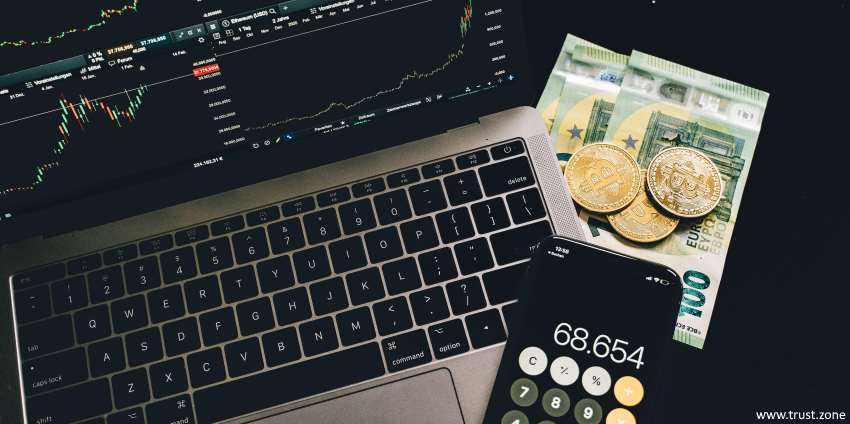Today we have instant access to mobile banking, digital payments, investment apps, and blockchain transactions. However, security risks also grow. More than 90% of breaches in 2025 had financial reasons. The fintech industry handles sensitive data, the main target of cybercriminals. A data leak means millions of dollars in losses, fines, and serious reputational damage.
How to stay protected? Implement strong digital defenses. Usually, companies use several layers of protection, and one of them is VPN. Earlier, it was used as an optional solution for privacy, but now VPN is a must-have component of a security system. How exactly does a VPN work and protect data? Let’s have a closer look!

Traditional banks have strict security systems, but they can be slow and have restrictions. Fintech startups, on the other hand, are fast and accessible. They use cloud technology and offer instant, convenient services, but that speed comes with new risks. Here are some of the biggest ones:
Data loss. Hackers always try to gain access to bank account details, transaction histories, and credit scores. As a result, a company may lose both money and trust.
Phishing. Scammers send fake emails or texts and pretend to be your fintech provider. This way, they get your password or approval for fake transactions and steal money or identities.
Man-in-the-middle attacks. Someone can intercept your interaction with financial apps. That's how your personal data can be stolen during a transaction. Hackers get between you and your fintech app, steal login details or change transactions, and you don’t even notice.
Unsecured Wi-Fi. Public Wi-Fi is unsafe. Fintech employees and customers regularly access financial apps from coffee shops, airports, and hotels, but don’t realize the risks. Hackers can intercept communications and steal your details.
A VPN creates a private space for your Internet activity. It simply hides your data from hackers, which is especially valuable when you are on public Wi-Fi. So, when you use a VPN, only you and the fintech provider can see what’s going on.
Data encryption. VPN encrypts all data transmitted during transactions. It uses military-level AES-256 encryption. It means all data appears as an unreadable set of characters. Even if a criminal gets this information, they cannot decipher it.
IP anonymity. When someone connects to a VPN, their device's real IP address is hidden. Instead, the VPN server’s IP is shown. It’s an additional security barrier for financial companies. It makes it much harder for cybercriminals to track and target specific employees or systems.
Secure remote access. A VPN allows employees to work safely from anywhere. It creates a safe space between their remote devices and the company's systems. So, a home laptop can communicate with internal servers without any data leaks.
No geo-restrictions. VPNs also allow fintech companies to work smoothly across borders. For example, they can access region-specific services in certain countries. This helps with rules, resources, and keeps data safe and encrypted.
The above issues, unfortunately, are more common than they seem. About 1 in 5 fintech companies had a reported security breach in 2024. And nearly 1 in 3 of those were hit more than once. Moreover, the cost of an average breach in the financial sector is over $6 million per incident.
VPNs will make a real difference in these fintech operations:
Secure online banking. Customers often log in from home, a hotel, or a café, and a VPN keeps their personal and financial data safe. It encrypts everything, so hackers can’t see login details or intercept transactions.
Safe crypto transactions. Crypto trading or blockchain assets management also need a VPN. It helps hide wallet addresses, secures trading activity, and keeps private keys out of reach from cybercriminals.
Secure tools integration. Many fintechs use tools like an invoice generator to handle transactions or billing. A VPN encrypts sensitive client information and payment records from unauthorized access.
Data law compliance. VPN enables fintechs to stay compliant with privacy laws. User data is well protected, and cross-border access is traceable and risk-free.
Safe remote access. Today, more teams work remotely, so VPNs protect employees using public or home networks. They create a private connection to company systems and lower the risk of data leaks or cyberattacks.
Choose the right VPN tool. Look for VPN solutions that provide bank-level AES-256 encryption, which strongly protects sensitive data. The provider should have a verified no-logs policy, which means they don’t store user activity. Automatic kill switches are also important – they cut off internet access if the VPN connection drops unexpectedly and prevent data leaks.
Integrate it into your existing setup. VPN should be everywhere in your digital ecosystem, including remote workers’ devices, cloud servers, and API connections. Assign specific, dedicated IP addresses for critical financial operations for better access control.
Keep your VPN fresh. Test your VPN periodically to identify weak areas. Also, regularly update your VPN software. This approach will keep your security system strong against new threats.
Train employees. Your team should know when and how to activate the VPN, especially if they often use public Wi-Fi. They should be able to recognize various malicious attempts that could bypass VPN protections. Trained employees are a strong first line of defense.
Modern fintech companies simplify financial services for everyone. However, the risks are growing. Financial apps handle sensitive data, and strong protection is critical. A good VPN is a reliable solution that complements the overall security system. It locks down your connection, and not only that.
A VPN gives your team the freedom to work from anywhere, keeps customer information safe, and helps you follow data privacy rules without headaches. This simple tool quietly does a lot in the background. If you haven’t used a VPN so far, it’s time to implement it and strengthen your security.